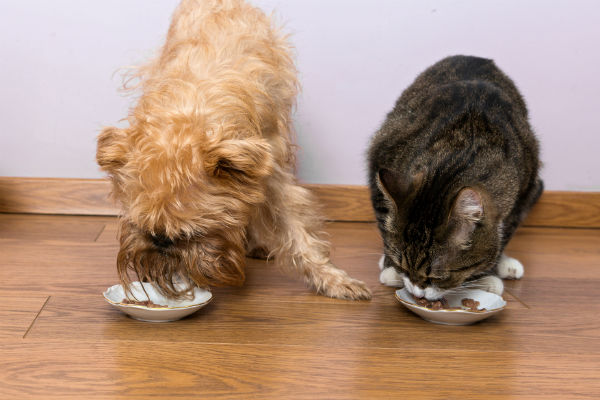Has your dog eaten a biotin pill? Are you worried the biotin pill will make your dog sick? If so, then you’ve come to the right place!
Connect with a verified veterinarian in minutes. Licensed vets are available 24/7 to answer your questions. No need to worry about your furry family member.
In this article, we’ll take a look at what biotin is and whether or not it can make your dog sick. Let’s get started!
What is Biotin?
Biotin, also called vitamin B7 or vitamin H (they’re both the same thing!), is a water-soluble vitamin. This is a vitamin that’s not stored in the body.
Biotin is a vitamin that’s needed for a dog to be healthy. It has many benefits for a dog’s health, including:
- Proper formation of muscles
- Healthy digestion
- Normal growth
- Healthy coat & skin
- Improved energy
- Thyroid & adrenal gland function
- Functioning of the reproductive tract
It’s possible for a dog to have a biotin deficiency, though this is rare. You may notice symptoms such as skin lesions, scaly skin, dry/dull hair & coat, lethargy, hair loss, diarrhea, and more.
However, what happens if a dog has too much biotin?
Biotin & Dogs
Because biotin is water-soluble, it is eliminated through the dog’s urine. It’s rare that a dog could have an overdose of biotin.
However, some dogs may be allergic to biotin at higher doses.

Review symptoms, medications & behavior to keep your pets healthy with a Vet Online in just minutes.
Ask a Vet Live NowSymptoms of an Allergic Reaction to Biotin in Dogs
You may notice these symptoms if your dog has an allergic reaction after eating biotin:
- Breathing difficulties
- Pawing at mouth/face
- Swelling of the face
- Hives
- Itchy, red, irritated skin
- Diarrhea
If your dog is showing any of these symptoms, it’s a good idea to call the vet. If your dog is having breathing difficulties and swelling of the face, this could be a sign he’s having a severe allergic reaction called an anaphylactic reaction. This is a medical emergency.
Treatment of an Anaphylactic Reaction in Dogs
If your dog is having a severe allergic reaction, then the vet will give the dog a dose of adrenaline by injection. Antihistamines and hydrocortisone may also be given, possibly through an IV. The IV may also support your dog with additional fluids, and he may also require supplemental oxygen.
While this is scary, if your dog receives prompt medical treatment, he should be OK. The key is to call the vet and get treatment as soon as possible.
Once your dog’s symptoms have stabilized, the vet will discuss any preventive measures that may be needed in the future. These will help your dog avoid more severe allergic reactions. It may even be necessary to put your dog on long-term medications such as an antihistamine and more.
In most cases, with prompt medical care, your dog should make a full recovery!
Connect with a verified veterinarian in minutes. Licensed vets are available 24/7 to answer your questions. No need to worry about your furry family member.

Kyoko
Kyoko is from a family of 3 and moved to New York with her parents and siblings when she was 13. Kyoko is fond of spending a great amount of time with pets, specifically her beagle Luna and cat Missy. Her boyfriend often complains that she spends too much time giving attention to their animals. Kyoko has written dozens of articles concerning pets and is aiming at owning a pet shop one day!
Review symptoms, medications & behavior to keep your pets healthy with a Vet Online in just minutes.
Ask a Vet Live Now




